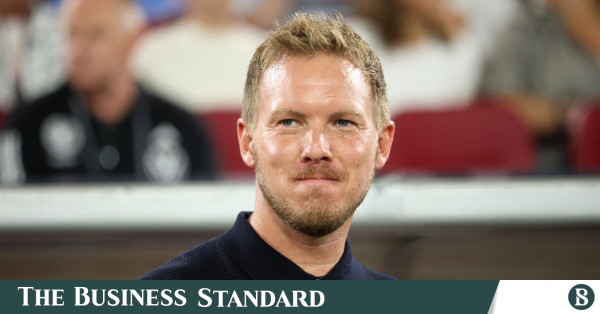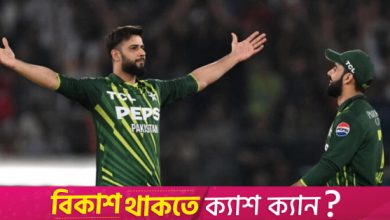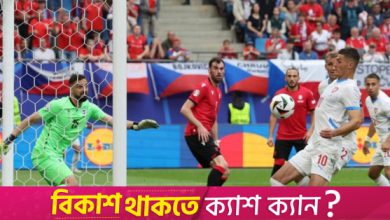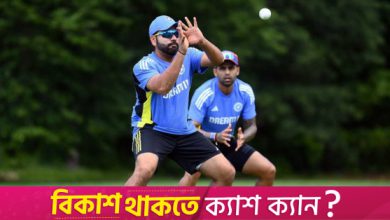Nagelsmann’s tactical switches prove Germany’s potential without Kroos

After a tough exit from the European Championship, Julian Nagelsmann’s Germany returned to action in the Nations League, dominating Hungary with a 5-0 win in Dusseldorf (18 August).
It was a statement of intent, as the team looks ahead to the 2026 World Cup.
The last time Germany played, they were knocked out of Euro 2024 in heartbreaking fashion, losing to a 119th-minute goal from Spain’s Mikel Merino in the quarter-finals. That loss was painful, but the sense of unity within the squad softened the blow. The players had grown close during the tournament, making the farewell at their Herzogenaurach base camp emotional.
Fast forward to the Merkur Spiel Arena, where the atmosphere was electric. The crowd of over 50,000 fans cheered as Niclas Fullkrug, Jamal Musiala, Florian Wirtz, Kai Havertz, and Aleksandar Pavlovic all found the back of the net. It felt like a continuation of the summer, with Peter Schilling’s “Major Tom” once again providing the soundtrack.
Yet, the team on the pitch has undergone significant changes. Key veterans like Thomas Muller, Manuel Neuer, Ilkay Gundogan, and Toni Kroos have retired from international duty. While all of them leave a void, Kroos’s absence has been the most challenging to fill.
Kroos was pivotal in Nagelsmann’s system during Euro 2024. His ability to dictate play, especially through his precise short passing and trademark long switches, was crucial. At the tournament, Kroos averaged 102.8 passes per game, the highest of any player, positioning himself between the centre-backs to orchestrate the team’s build-up.
Germany’s reliance on Kroos raised concerns about how they would cope without him. However, Nagelsmann’s decision to deploy Pascal Gross, the experienced midfielder who joined Borussia Dortmund this summer, against Hungary hinted at a successful transition.
Gross may not have Kroos’s glittering resume, but he was given a similar role. Sitting deep in midfield, he frequently dropped between centre-backs Jonathan Tah and Nico Schlotterback, guiding the ball through Hungary’s press. Unlike Kroos, who was typically fixed in that position, Gross shared responsibilities with Robert Andrich, often pushing further up the pitch.
It worked brilliantly. Gross’s passing may not be as expansive as Kroos’s, but he was just as effective at moving the ball forward and keeping Germany’s play sharp. This subtle change in the midfield dynamic allowed Germany to look more fluid and varied than they had during the summer.
Another key figure in the new-look side was Kai Havertz, who took on a deeper role, replacing Gundogan at the head of midfield. During Euro 2024, Havertz had been used as a centre forward, but here he was tasked with linking midfield and attack.
Havertz’s versatility, physicality, and technical skill made him a constant threat. He rattled the crossbar twice, earned a penalty which he coolly converted, and played a vital part in Germany’s attacking movements. His ability to drop deep and interchange positions with teammates like Musiala and Wirtz kept Hungary’s defence in disarray.
It was Germany’s most exciting display of attacking football in years. The fluidity of the front six, who regularly swapped positions, made the team unpredictable and impossible for Hungary to handle. The variety in their play was particularly striking, with every player contributing to the build-up and pressing high when out of possession.
Nagelsmann’s tactical flexibility has always been a hallmark of his career, whether at Hoffenheim, RB Leipzig, Bayern Munich, or now Germany. This match wasn’t just a tactical response to Hungary but a showcase of what his team can do when given the freedom to express themselves.
The mood in the stands mirrored the team’s performance, with fans in pink replica shirts celebrating each goal with pure joy. After such a promising performance, excitement is building for their next challenge: a clash against the Netherlands in Amsterdam.
Germany looks refreshed, full of creativity, and ready for what’s to come. This new era, even without Kroos, promises to be just as exciting.





